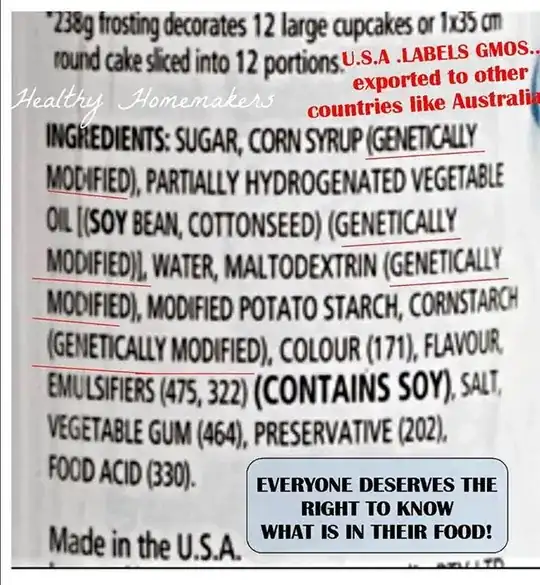From a facebook photo
What Labeling of US food looks like in Australia... Raw for beauty blog

The picture contains a purported list of ingredients for frosting in Australia:
INGREDIENTS: SUGAR, CORN SYRUP (GENETICALLY MODIFIED), [lots of other ingredients, with many saying "(GENETICALLY MODIFIED)" after them]
Near the bottom, is "Made in the U.S.A.", and overlaid text of "EVERYONE DESERVES THE RIGHT TO KNOW WHAT IS IN THEIR FOOD!", and in the top right corner is "U.S.A .LABELS GMOS.. exported to other countries like Australia"
Are GMO ingredients labelled this way in Australia?